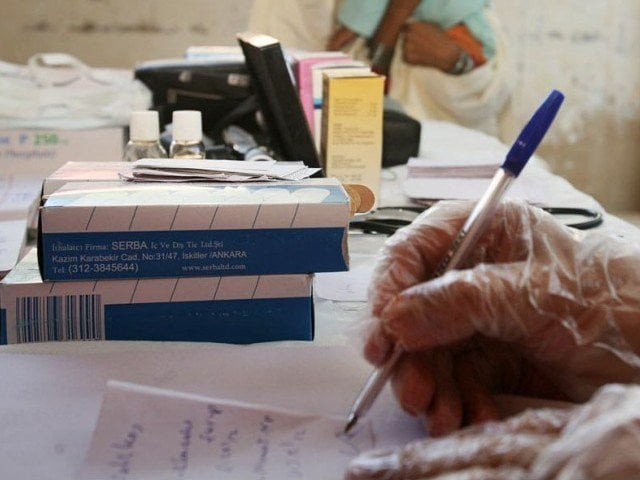NIH to extend lab network to provincial capitals
Disease surveillance units already working in provinces, AJK, G-B and FATA

Disease surveillance units already working in provinces, AJK, G-B and FATA. PHOTO: FILE
According to an official of NIH, a real time Integrated Disease Surveillance and Response system was being designed and it will be set as pilot project in selected districts of all the provinces shortly.
He added training was being given to the federal and provincial health staff to act as rapid response teams to tackle the outbreaks and epidemics.
He said that public health laboratories division, NIH was providing diagnostic facilities for epidemic-prone diseases to the citizens.
He said that it also supports to strengthen laboratory diagnosis for early detection of cases, surveillance and infection control measures in health care facilities.
He said that a 'health hub' is being made operational at NIH, while zoonotic and entomology reference lab capacities are being enhanced to detect, prevent and response other vector borne and zoonotic diseases in collaboration with animal health and environment professionals.
The official said that the NIH has established well equipped Disease Surveillance and Response Units (DSRUs) in Director General Health offices at all provinces, AJK, G-B and Fata.
He added trained workforce along with trainees is deployed at all DSRUs to conduct surveillance, response and outbreak investigations.
He said that all DSRUs are involved in response to the prevalent diseases like chikungunya and dengue. He said that Pakistan was facing double burden of communicable as well as non-communicable diseases due to epidemiological transition.
On the communicable disease front, various geographical areas of the country continue to encounter outbreaks resulting insignificant burden on the national healthcare delivery system in terms of morbidity as well as mortality.
Published in The Express Tribune, September 23rd, 2017.



















COMMENTS
Comments are moderated and generally will be posted if they are on-topic and not abusive.
For more information, please see our Comments FAQ